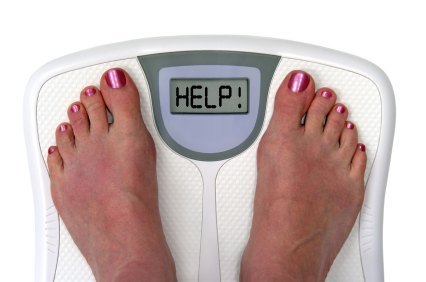18 Ways To Improve Your Mental Health When Working From Home

While working from home certainly has its perks; no commute, no dress code, a more flexible schedule—it also blurs the line between work and personal life, disrupting the sensitive balance that exists between the two. Incidences of depression due to working from home are on the rise. So is anxiety. We haven’t yet been taught how to maintain our mental health as our work and personal lives inexorably intertwine. As more companies continue to move their workforce remote, it’s time we learn this newly important skill.
Below are 18 ways you can improve your mental health while working from home, listed in chronological order so you can follow along as your day progresses.
Gift Yourself Your Old Commute Time
Stick to your old routine where you had to commute to work. Only now, instead of spending that 30-45 minutes in your car or in transit, use your “commute time” just for you. The next few tips will give you ideas about what to do with this new-found self-care time.
Break Your Fast
Breakfast is the most important meal of the day for our physical and mental health. Skipping breakfast mimics famine which increases our stress levels. Inversely, eating breakfast will reduce cortisol (stress hormone) production. Additionally, eating breakfast sets up our energy levels for the day and has been proven to boost anabolic hormone levels by 15%. Make a smoothie or simple sprouted grain avocado tahini toast and eat within 30 minutes of getting up to break your intermittent fast from the night before. Not hungry when you wake up? Make sure to eat your last calorie at least 12 hours before you plan to wake up. This allows our body’s autophagy process for cellular recycling and reducing inflammation to occur, and ensures we will be hungry when we wake up.
Take a Morning (Sun) Bath
In the correct situation, the cortisol hormone we mentioned above can be your friend as it’s what perks you up like a natural cup of coffee. Eat your breakfast near a window to allow the early morning light to set your circadian clock for a productive morning. Encourage other family members to join you.
Own Your Morning
It’s too easy to immediately turn to watching the news or checking emails upon waking. However, this starts our minds spinning. Instead, consider reading something inspiring or pleasurable immediately upon waking, or go for a 20-minute walk outdoors, noticing as much of the natural world from as many of your senses as possible (the sky, the snow or rain, the breeze, space between branches, the sound of a bird). This practice of presence will bathe your brain in neurotransmitter feel-good hormones. Paying attention to the details and richness of the world we live in adds more beauty and gratefulness to our day.
Get A Pre-Work Fat Flush
If you can wake up 90 minutes before work, consider walking briskly (between 6.5 and 8.5 perceived rate of exertion out of 10) for 40 minutes to get a cardio fat flush, or alternate walk days with online HIIT workouts, or an online yoga class. Getting a full workout in before has been proven to significantly reduce anxiety and the effects of depression, starting your day on the right foot, literally.
Channel Your Inner Wim Hof
Take a hot shower and end with a cold rinse to increase your circulation and support your elimination system in its ongoing detoxification process.
Dress For Success
Dress for work not sleep to boost your commitment and confidence.
Setup Your Workspace for Success
Situate your computer in front of a window for natural light (if possible, use an adjustable standing desk and alternate between sitting and standing to promote circulation). Consider some greenery, house plants, fresh flowers, and photos of nature all of which help balance constant screen time. Quiet background music (classical, meditative instrumentals, or binaural beats) can help promote calm and concentration and override sounds coming from family members in the house.
Optimize Your Concentration
Too often our productivity is sabotaged at home by distractions. This can lead to a sense of failure for the day. Instead, check your daily calendar for the priority list you set at the end of yesterday’s workday—ask yourself if the items are still relevant. Then organize your day into 90-minute concentrated segments where you work on just one thing. Give yourself 10 minutes between these concentrated work sessions to resource yourself while giving your eyes a break from the screen. After experimenting in 90/10 time segments you may wish to try the Pomodoro Method of 25/5 and notice which time period works best with your concentration levels. You will accomplish more while still giving yourself necessary breaks, resulting in a satisfying day of work.
Reboot 10 Minutes At A Time
Our happiness is intrinsically tied to our productivity. Creating feels good. It gives us confidence and purpose. In order to be as productive as possible, we must take breaks to recharge and refocus, but a longer lunch is not the solution. We’re better off working hard for 90 minutes then taking 10-minute breaks. Consider these 10 min reboot sessions:
Posture stretches to avoid rounded computer shoulders, text neck, and lower back pain.
8-minute guided mindfulness meditation
Keep Your Blood Sugar Level
Blood sugar spikes and plummets contribute immensely to our mood. Leveling out your blood sugar by eating the right food in the right portions at the right time will avoid any “hanger” or the need for an afternoon jolt of caffeine, which for more than a third of the population causes cortisol levels (that pesky stress hormone) to increase. Spread your calories across your day, eating 6 times; break-the-fast morning smoothie or toast, breakfast, morning snack, lunch, afternoon snack, and dinner. For your mid-morning snack, have a piece of fruit and 2 tablespoons of nuts or seeds, and for a mid-afternoon snack, a few veggie slices with 2 tablespoons of golden almond butter protein dip. Remember to stay hydrated throughout your day, as well!
Batch Cook Lunch Ahead Of Time
Take the stress out of eating lunch at home by premaking a couple of soups on the weekend. This ensures you don’t stress over lunch prep or cleanup. Here are some of our favorite easy “warm-up” soup recipes:
Wrap It Up
Don’t just up and leave when the whistle blows. Save the last 30 minutes of your workday to review the day with a dedicated work journal, and then plan and calendar your priorities for tomorrow. Finally, clean and clear your workspace so you can start tomorrow fresh. We can never finish all of our work, but by segmenting your day into periods of resourced and fueled concentration we can be confident in our efficacy. Bonus: end your workday at the same time every day to introduce consistency.
Reward Yourself For A Hard Day’s Work
At the end of a hard, stressful workday, we are craving release. Too often, however, we seek release in the form of wine or salty, fatty, carby snacks. Instead, lower your stress hormones at the end of the day and bathe your hard-working brain with serotonin, oxytocin, and dopamine with a more productive option. Try a 5-minute meditation, petting your pet, or 20 minutes of yoga, Tai Chi, creativity, or forest bathing. These are all healthy ‘happy hour’ alternatives that will still satiate our need to feel good.
Go For A Post-Dinner Walk
After eating a healthy dinner, get up from the table and go for a 20-minute walk with yourself, family or pet around the neighborhood to use those calories, rather than store them. This will help set you up for a good night’s sleep and prevent you from waking up groggy.
Power Down 1 Hour before Bed
Power down all electronics at least 1 hour before bed to physically reduce exposure to stimulating blue-light and emotionally reduce exposure to stimulating content like social media, news, and work email. Consider soft lighting, a warm bath (add Epsom salts for an added detox), 10 minutes of gentle and slow yoga stretches, a 5-minute breathing meditation, trading a shoulder massage with your mate, or reading a novel all to invoke the “rest and digest” parasympathetic nervous system to prepare for deep sleep.
Reflect and review
Review your day in a journal. Bring your awareness into noticing how any of these tips are affecting your mental clarity, positive emotions and moods, energy levels, productivity, sense of owning your day and life, and feelings of gratitude. Finally, write down and thoughts bouncing around in your head. Simply putting them down on paper allows us to rest assured that we won’t forget them.
Sleep
Easier said than done, but this last tip is just as important as the rest. Sleep is when we heal, physically and mentally, and recharge our batteries for the next day. Ensure you’re fully charged by following our comprehensive Guide To Great Sleep.
Your mental health and resiliency are vital to a long and happy life. Do your best not to try and implement all of the above at one time. Instead, start by choosing two that interest you and try to implement them just twice this coming week. Once you’ve had success with that seemingly easy task, increase the frequency to three times a week, and then eventually add a third and fourth action. Trying to do it all right off the bat is one of our most common pitfalls when trying to accomplish goals. Read our article How To Build A Healthy Habit in 6 Steps.
What is Mountain Trek?
Mountain Trek is the health reset you’ve been looking for. Our award-winning health retreat, immersed in the lush nature of British Columbia, will help you detox, unplug, recharge, and roll back years of stress and unhealthy habits. To learn more about the retreat, and how we can help you reset your health, please email us at info@mountaintrek.com or reach out below:










